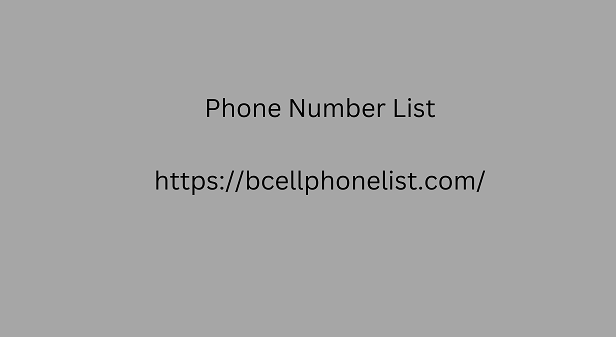Post by aloo5436459 on Feb 24, 2024 6:13:08 GMT
Web page loading speed is an important part of the site's usability and SEO work. Google has considered page loading speed as one of the 200 factors that affect rankings and user experience in search results. It is becoming more important day by day that many sites compete in their areas of interest, provide site traffic and offer rich usability to people. If your site does not load quickly, this means that you may lose visitors to your competitors. Optimize Image Size The images on your site make up a large part of the page size and ultimately affect the loading time of your site.
It is not enough to reduce the images on your site in the HTML editor because this affects only its appearance on the page, not its actual size. Resize the image using Photoshop or similar Phone Number List additional tools. Here are a few online tools that can optimize your site's images: JPEG & PNG Stripper Smush.it Online Image Optimizer SuperGIF 2. Format of Image Files If you want to optimize your page loading speed, you should stick to standard image formats such as JPG, PNG and GIF. 3. Avoid Text Graphics Some sites may need to use stylized text to make the pages look attractive.

It's a good idea to use text styles in the CSS section and keep everything in text format. 4. Get Rid of Unnecessary Plugins If a site requires plugins, it can slow down page loading speed. Not every plugin is necessary. For example, social sharing plugins are available on almost every site these days. What you need to do is to check if there are alternatives to these plugins. For example, a CMS that includes these by default will save you from using plugins. 5. Avoid Inline Javascript and CSS Files It's a good practice to place your site's Javascript and CSS in external files.
It is not enough to reduce the images on your site in the HTML editor because this affects only its appearance on the page, not its actual size. Resize the image using Photoshop or similar Phone Number List additional tools. Here are a few online tools that can optimize your site's images: JPEG & PNG Stripper Smush.it Online Image Optimizer SuperGIF 2. Format of Image Files If you want to optimize your page loading speed, you should stick to standard image formats such as JPG, PNG and GIF. 3. Avoid Text Graphics Some sites may need to use stylized text to make the pages look attractive.

It's a good idea to use text styles in the CSS section and keep everything in text format. 4. Get Rid of Unnecessary Plugins If a site requires plugins, it can slow down page loading speed. Not every plugin is necessary. For example, social sharing plugins are available on almost every site these days. What you need to do is to check if there are alternatives to these plugins. For example, a CMS that includes these by default will save you from using plugins. 5. Avoid Inline Javascript and CSS Files It's a good practice to place your site's Javascript and CSS in external files.
